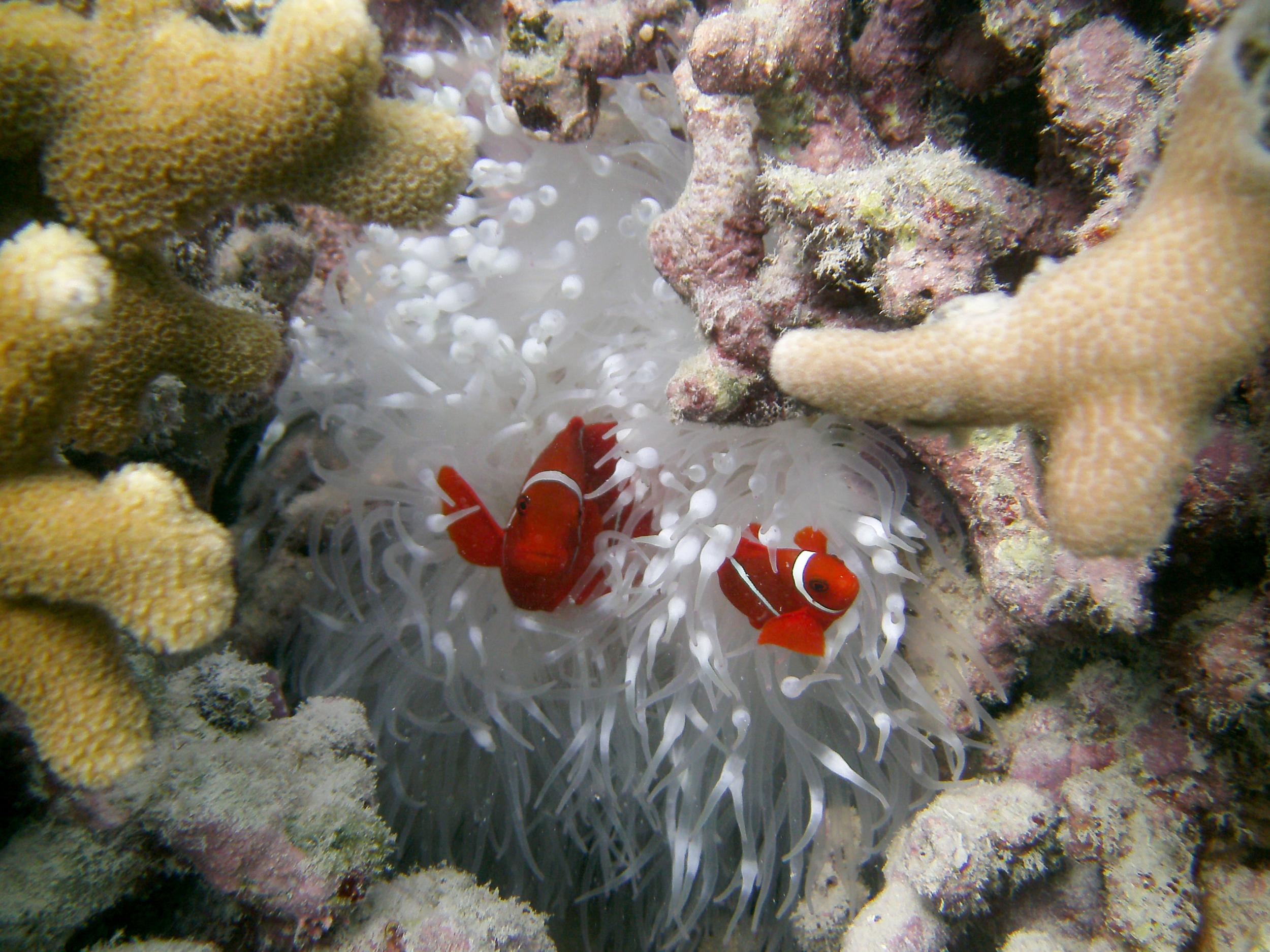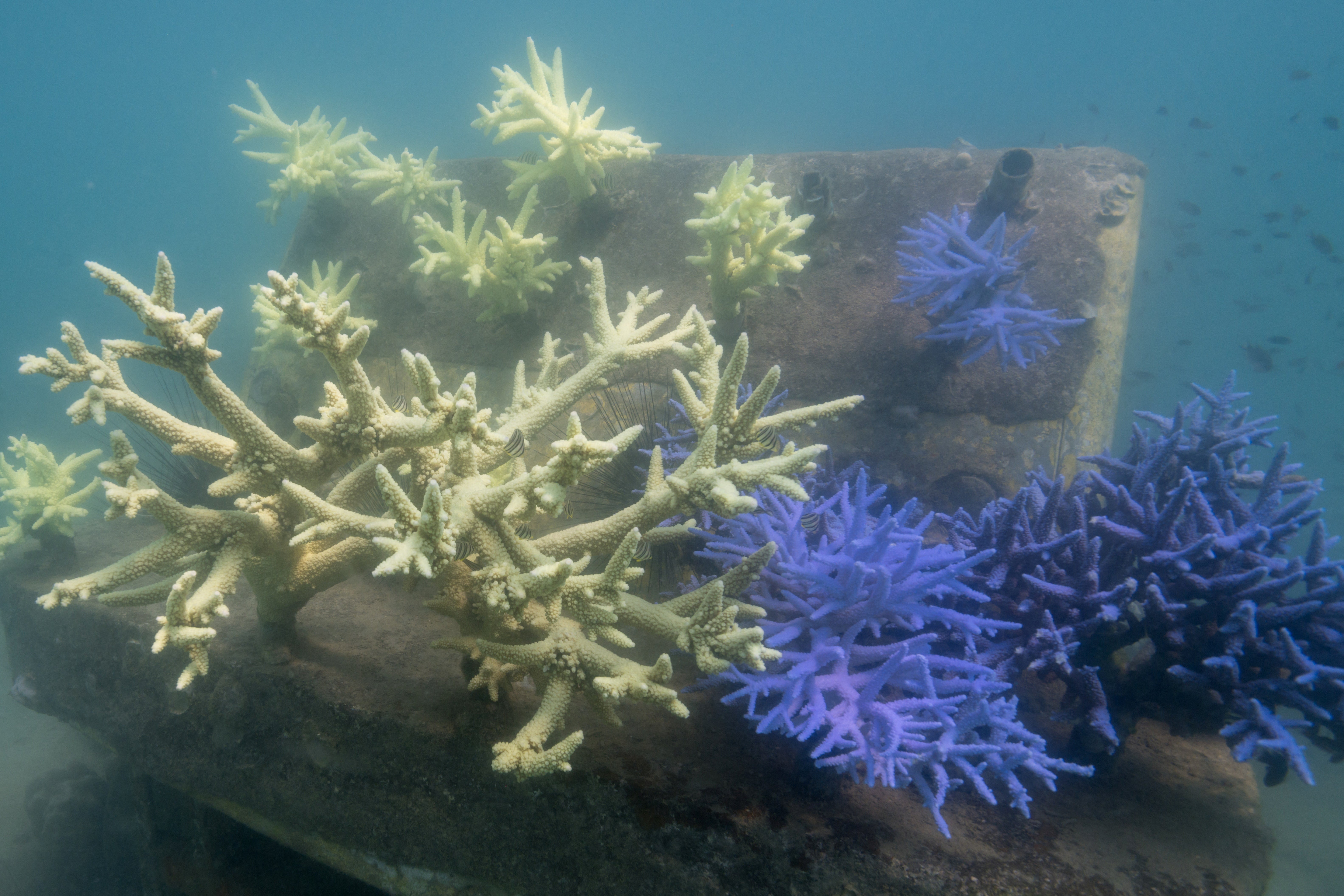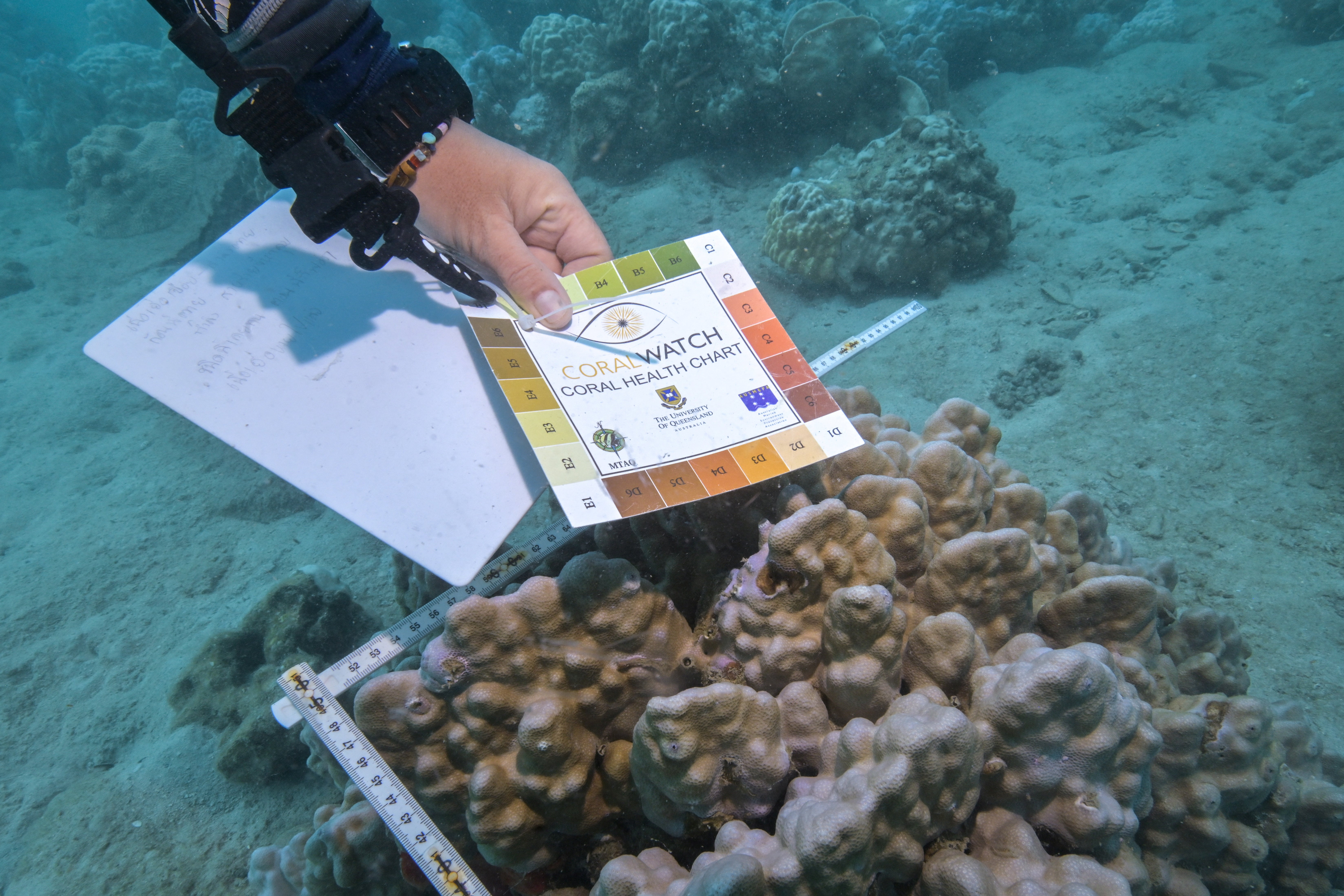At least 97 percent of coral on the northern Great Barrier Reef has died in the most severe bleaching event on record.
The discovery was made by scientists from multiple agencies who used high-resolution drone imagery to monitor coral reefs near Lizard Island.
“At least 97 per cent of the corals died over a three-month period. We were there to do sea cucumber monitoring work but there was silence among the nine of us researchers,” said Professor Jane Williamson, a marine biologist at Macquarie University who, along with colleagues, analysed the coral mortality at Lizard Island’s North Point Reef.
“I was horrified” when she saw the results, she said. “We came out and I didn’t know what to say. This is an iconic reef and most of it was dead,” she added.

Drone footage taken in March showed widespread coral bleaching and fluorescence, but by June almost all of the coral had died.
The bleaching event, the fifth in eight years, follows a similar one last summer, which caused extreme heat stress on parts of the reef.
Bleaching is when corals lose their vibrant color and turn white, usually due to changes in temperature. Coral reefs are among the most diverse ecosystems on Earth, providing habitat and food for a wide variety of marine life.
The footage the scientists collected provides the first quantitative assessment of coral death caused by this mass bleaching event.

Four experts independently assessed the condition of each coral in a designated section of North Point Reef.
“We do not know how much coral died outside of this reef, but we do know that other aerial surveys have shown that almost a third of the Great Barrier Reef experienced ‘very high’ and ‘extreme’ levels of coral bleaching last summer,” the scientists wrote in The Conversation.
Scientists are calling for more research to assess the rate of coral mortality.

The evidence emerged after UNESCO called on the Australian Federal Government to publish data on the extent of coral die-off as soon as possible.
Environment Minister Tanya Plibersek recently announced that UNESCO would not list the Great Barrier Reef as a “World Heritage Site in Danger”, but the organisation is calling on Australia to improve its climate change action plan and land management practices.
“[Australia] “We strongly urge that mortality figures be published as soon as possible,” the UNESCO report said.
Dr Lyle Bale, director of the Australian Museum’s Lizard Island Research Station, said the incident was heartbreaking.
“It’s really sad to lose all that coral recovery,” he said.










